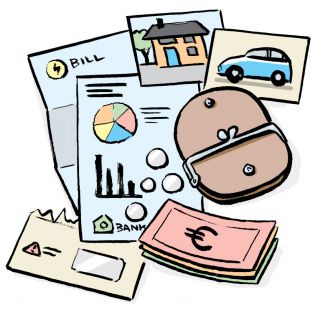Budget 2019 should invest in social infrastructure, rather than in tax cuts

Ireland now has the resources to ensure that Budget 2019 addresses the key challenges facing Irish people. The question is whether Government has the political courage to invest in our social infrastructure and give priority to tackling our housing crisis, reforming the healthcare system and addressing rural and regional challenges.
Ireland’s infrastructure in areas such as social housing and rural broadband is not what it should be. Our performance in areas such as child poverty, healthcare, and environmental sustainability leave a great deal to be desired. Budget 2019 is an opportunity for Government to invest in areas that will improve the quality of life for people and communities all over Ireland.
Most Irish people want to see an end to homelessness, hospital waiting lists and child poverty. They want to see increased investment in good quality affordable childcare, rural broadband, and much more. These should be the priority targets of Budget 2019, not the tax cuts being encouraged by some. Budget 2019 has the potential to lift people out of poverty, to deliver a major breakthrough on the supply of social housing, to improve healthcare provision, and to resource communities. Our policy briefing Budget Choices 2019 makes a series of proposals on how to achieve these and much more besides. However much of the Government’s ability to achieve all of this depends on them having the courage to resist the pressure to cut taxes.
Social Justice Ireland’s budget proposals for 2019 are based on the values that have created the most progressive and equal societies in other countries around the world. Social Justice Ireland believes Ireland needs to broaden its tax base and increase its total tax-take from all sources to fund a fairer society. However, it insists that Ireland can do so without becoming a high-tax economy.
We are overrun with crises and infrastructural deficits in this country. Small tax cuts of €2 or €3 per week aren’t much use to people paying record-level rents, facing long hospital waiting lists, or paying the highest childcare costs in Europe. However, pooling those resources and using them to tackle our deficits in these areas can have a significant long-term impact on living standards. Adopting the measures we are proposing, each of which has been fully costed and is accompanied by a proposed funding method, would move Ireland in the direction of becoming a fairer, more equal society.
The full list of our proposals for Budget 2019 can be accessed here.
MAIN PROPOSALS:
Investment Packages
Social Housing: €1,250m, in addition to what has already been committed in Government plans, towards providing an additional 90,000 social housing units. (p. 8 of Budget Choices)
Healthcare and disability: €1,112m investment prioritising social and community care, disability, mental health and the roll out of Sláinte Care. (p. 11 of Budget Choices)
Rural/Regional Development: €505m to help complete the rollout of high-quality rural broadband, as well as additional investment in rural transport, a rural enterprise, retrofitting houses and community supports. (p. 10)
Education: €448m investment in areas such as adult literacy, DEIS, skills development and digital education (p. 12)
Pensions: A universal pension financed by reducing tax-breaks that currently favour the better-off, and a small increase in Employer PRSI. (p. 13)
Social Welfare: €331m which includes an increase of €6.50 per week in social welfare payments and an increase in direct provision payments. (p. 9)
Children: €180m focused on Early Childhood Care and Education, paternity leave and affordable childcare. (p. 12)
ODA: An additional €136m as a contribution towards increasing the aid budget over the next seven years to the UN target of 0.7 per cent of GNI*. (p. 13)
Tax Reform
Standard rate all discretionary tax expenditures: €480m
Standard rate tax break on all pension contributions: €483m
Remove tax refund element for R & D tax credits: €168m
Introduce a minimum effective corporate tax rate: €1,000m
Equalise Excise Duty on diesel and petrol: €68m
Increase accommodation sector VAT rate to 13.5%: €220m
Increase tax on in-shop and online betting by 3%: €150m